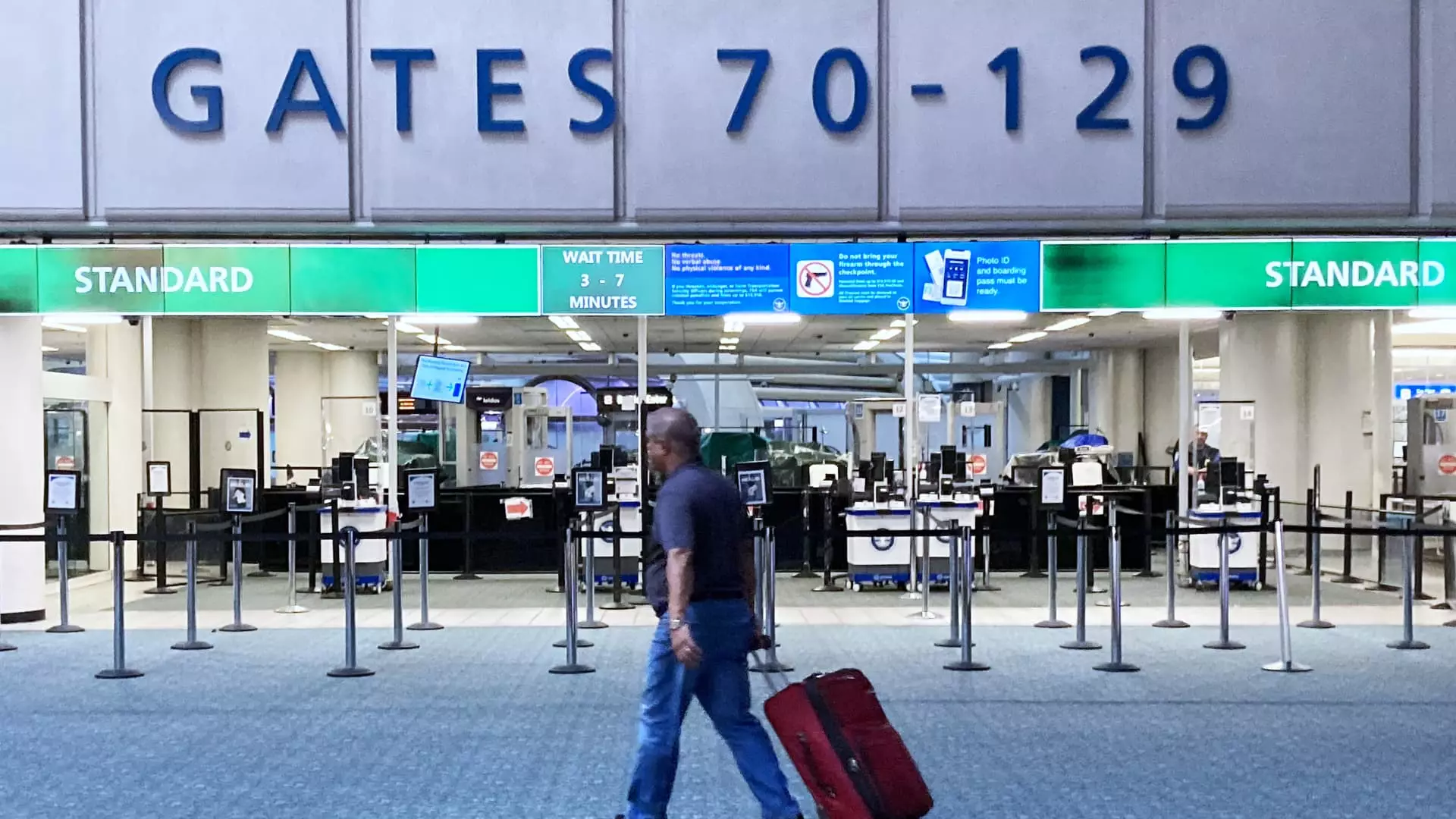As the country gears up for one of the busiest travel seasons of the year, a potential government shutdown looms ominously on the horizon. Lawmakers in Washington are currently at a standstill over budgetary concerns, and recent attempts to push through a short-term funding bill have failed miserably. If no agreement is reached by 12:01 AM ET this Saturday, the U.S. government could grind to a halt, leading to dire consequences for federal employees and travelers alike.
Should a shutdown occur, hundreds of thousands of government employees will face furloughs, essentially putting their livelihoods on hold at a critical time of year. Essential personnel, particularly within the Transportation Security Administration (TSA) and air traffic control sectors, will still be mandated to work despite not receiving compensation for their services. The scenario poses ethical dilemmas and operational challenges, as crucial staff like TSA agents and air traffic controllers strive to maintain safety and efficiency under the duress of working for free.
The ramifications of this situation deepen when considering the financial implications for the economy. The U.S. Travel Association has warned that the travel sector could incur losses of approximately $1 billion per week if the shutdown takes place during peak holiday travel. These figures underscore the potential for widespread economic disruption, affecting not only government employees but also families planning travel for holidays and businesses reliant on tourism.
The holiday season is projected to be exceptionally busy, with airlines anticipating record numbers of passengers. For instance, United Airlines expects to transport nearly 9.9 million travelers between December 19 and January 6, representing a remarkable 12% increase from the previous year. Despite the looming government shutdown, airlines insist their flights will proceed as scheduled. However, there is a dark cloud hanging over this optimism as extended government shutdowns can lead to delays and complications at airports.
The TSA has warned that while they will continue operations during a potential shutdown, longer wait times may ensue as staff shortages become more pronounced over time. The agency’s administrator, David Pekoske, has noted that although preparations are in place to handle crowds, a sustainable shutdown could result in significant delays, risking passenger safety and comfort during one of the year’s most hectic travel periods.
Looking back at history, the last significant government shutdown took place between late 2018 and early 2019, lasting over a month. This period saw severe disruptions, particularly in air travel, prompting lessons that should inform current policymaking. Notably, air traffic congestion on the U.S. East Coast during that shutdown highlighted the vulnerabilities in the system when critical personnel are forced to work without pay.
As we consider the situation unfolding today, it is essential that lawmakers take note of the significant consequences previous shutdowns have had on both government functionality and public trust. In a time when economic recovery is still fragile, particularly within sectors that rely heavily on consistent government operations, it is imperative that legislators prioritize collaboration over contention.
In the wake of these anxieties, airline leaders and executives have voiced their desire for a swift resolution to thwart impending complications. The incoming administration, under President-elect Donald Trump, will inherit a tense environment, and decisions made in the coming days may bear lasting consequences on more than just the government’s operational status.
Delta Airlines CEO Ed Bastian emphasized the urgency of modernizing air traffic control and addressing workforce shortages, calling for the new Federal Aviation Administration (FAA) administrator to prioritize these issues. With a record-breaking holiday season approaching, the need for operational stability is paramount. As the clock ticks down to the potential shutdown, the multifaceted implications serve as a clarion call for decisive action among lawmakers. The stakes have never been higher for both government employees and the millions of travelers eagerly anticipating a joyful holiday season.

